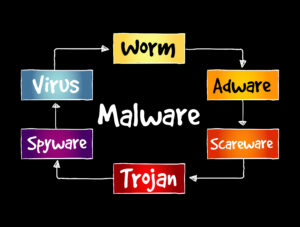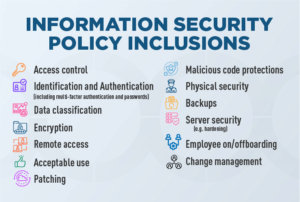Cyber Security – Ways to Defend Against Network Threats

 Businesses of all sizes are susceptible to cyber security threats. Since hackers and cybercriminals are always looking for new ways to exploit network vulnerabilities, business owners must take steps to protect their data and infrastructure.
Businesses of all sizes are susceptible to cyber security threats. Since hackers and cybercriminals are always looking for new ways to exploit network vulnerabilities, business owners must take steps to protect their data and infrastructure.
The Importance of Network Security
Having a secure network is vital to protect data and prevent unauthorized access to systems. Maintaining a secure network can also be part of meeting compliance requirements and for protecting a brand’s reputation. Businesses that neglect network security are more likely to experience data breaches, which can be costly and damaging.
Common Network Security Threats
Businesses can face many types of threats to their networks. Some of the top network security risks include:
-
Malware –
Malware is a term used to describe a wide range of malicious software, including viruses, trojans, and spyware. Malware can be installed on a system without the user’s knowledge, where it can then cause damage or steal data.
-
Spyware –
Spyware is software that collects information about a user without their knowledge. It can track what websites a target visits and collect sensitive data, like passwords and credit card details.
-
Phishing –
Phishing attacks involve sending fraudulent emails or text messages to obtain sensitive information from recipients. The messages may appear to come from a legitimate source, such as a bank or credit card company, but are in reality sent by scammers.
-
Ransomware –
Ransomware is malware that locks users out of their computer or mobile device until a ransom payment is made. Ransomware viruses can be challenging to remove and can damage or delete files on a user’s system.

-
Distributed Denial-of-Service (DDoS) attacks –
A DDoS attack is one of the most dangerous types of security threats. It is a type of cyberattack in which multiple systems flood a target with traffic, making it unavailable for legitimate users. DDoS attacks can be very costly and difficult to defend against.
Five Ways to Prevent Network Attacks
There are many ways to defend against network-related threats. It is important for companies to develop policies to mitigate against these security risks. Here are 5 of the most effective methods.
-
Install antivirus software.
One of the first lines of defense against malware and other viruses is to install antivirus software on all devices connected to a network. Antivirus software can detect and prevent malicious files from being installed on a system, and it should be updated regularly to include the latest definitions.
-
Create strong passwords.
Another essential step in protecting a network is to create strong passwords. Passwords should be at least eight characters long and include a mix of letters, numbers, and symbols. They should also not be easy to guess—for instance, the user’s name or the name of the company.
-
Enforce security policies.
A third way to reduce risk of attacks on a network is to enforce security policies. Security policies can help ensure that all devices on a network are protected against viruses and malware and that users are using strong passwords. These policies can also restrict access to some network regions and limit user privileges.
-
Use firewalls.
Firewalls are another essential tool to defend networks against security threats. A firewall can help prevent unauthorized access to a network by blocking incoming traffic from untrusted sources. Additionally, firewalls can be configured to allow only certain types of traffic, such as web traffic or email.
-
Monitor activity.
Finally, it’s important to monitor activity on the network. Tracking logs and other data enables suspicious activity to be identified quickly, allowing security personnel to take steps to investigate and mitigate potential threats.
Consequences of Network Breaches
Network security breaches can have severe consequences for businesses, including:
-
Data loss –A network security breach can result in the loss of sensitive data, such as customer information or financial records.
-
Damage to reputation – A breach can also damage a company’s reputation and make it difficult to regain the trust of customers and other stakeholders.
-
Loss of revenue – In some cases, a network security breach can lead to a loss of revenue as customers take their business elsewhere.
-
Increased costs – Breaches can also lead to increased costs, such as hiring new staff or upgrading security systems.




